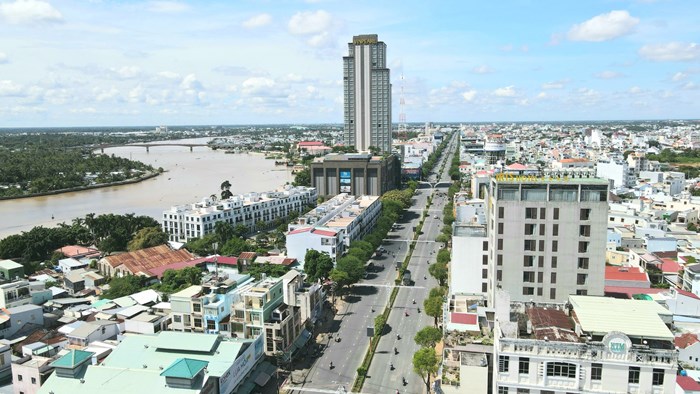HCMC – Property prices in Vietnam’s Mekong Delta are projected to rise 5-10% this year, driven by a shortage of supply, according to industry experts.
Speaking at a conference on February 22, Pham Van Luan, vice chairman of the Can Tho Real Estate Association, said the prices of residences on the primary market would edge up while those in the secondary market are expected to remain stable.
High-end condominiums are anticipated to become a new trend for both residence and investment, garnering a positive response from the market.
Regarding land plots, Luan emphasized a significant price surge, particularly due to regulations prohibiting land from being divided into small lots in special designated urban areas, effective next year.
A ban on land subdivisions in special Class I, II, and III urban areas could give existing land development projects a boost in 2024 as land becomes scarcer, paving the way for more ready-built houses and condominiums.
In Can Tho City, the focus of supply will be on apartment segments, including social housing and high-end units, while suburban districts will dominate in land plots.
The positive market outlook is attributed to robust government policies, substantial public investment, and completion of vital infrastructure projects, attracting customers and investors from other regions. The real estate market in the Mekong Delta region of Vietnam is expected to attract remittances and additional funds from maturing bank deposits amid declining interest rates.
Duong Quoc Thuy, chairman of the Can Tho Real Estate Association, noted signs of improvement in Vietnam’s real estate market since late 2023, indicating a revitalized sector in the upcoming years. Thuy highlighted the revitalization of capital flow into the real estate sector following a period of tightening measures, with significant impacts from four interest rate cuts by the State Bank of Vietnam fostering conditions for growth and stability.
Can Van Luc, a member of the National Financial and Monetary Policy Advisory Council, emphasized the need for enhanced dissemination of information and guidance to facilitate proper implementation and mitigate violations.









